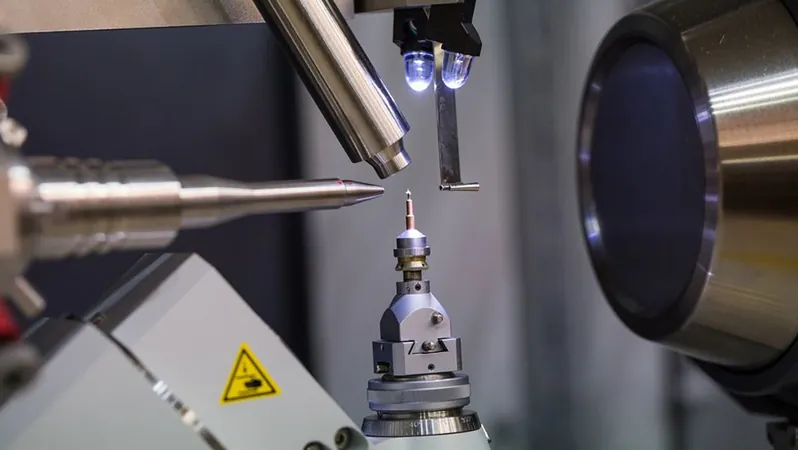
This Surprising Study Reveals Why Time Feels Like It Slows Down in the Gym
2025-05-03
Author: Daniel
Awareness or Exercise? Time Moves Slower in the Gym!
Have you ever felt like time crawls when you're sweating it out at the gym? A fascinating new study confirms it’s not just your imagination! Researchers have discovered that, on average, time perception can be about 9% off during exercise.
In this eye-opening study, participants pedaled away on stationary bicycles and were then challenged to estimate 30 seconds. Their results showed they consistently believed time passed more slowly than it actually did—talk about a workout illusion!
The Experiment: Racing Against the Clock and Each Other
The study involved 33 participants who cycled a distance of 4000 meters while estimating the passage of time at various stages: before the race, and after 500, 1500, and 2500 meters, as well as post-exercise. They tackled the course three different ways: solo time trials, racing against a virtual opponent, and head-to-head against a real competitor.
Surprisingly, no participant’s sense of time changed whether they were racing solo or pushing against a rival. This opens up intriguing questions on how our bodies and minds interact during physical exertion.
Breaking New Ground in Exercise Science
While the study size is small, the researchers highlight its innovative methods and findings, which mark uncharted territory in sports science. Understanding perceptions during exercise could help elite athletes fine-tune their pacing strategies.
The study has been peer-reviewed and published in the journal Brain and Behavior, with researchers from the Netherlands and England focusing on sports psychology.
Is the Key to Speed in the Mind?
The research suggests that if competition doesn’t alter our perception of time, athletes may need to explore other techniques to keep boredom at bay while maintaining focus. This could include tools like timed lighting, which can enhance pacing and output in a race.
Star athletes like Michael Phelps turn to visualization techniques to master their race timing, emphasizing the importance of the psychological aspect of racing. A single mistake, like a poorly timed flip turn, can cost everything.
Future Directions: More Research Needed!
The researchers conclude that there’s much more to discover about how external stimuli, workout intensity, and session duration affect our perception of time during exercise.
For competitive athletes, mastering this elusive sense of time can be the difference between winning and losing. So next time you're pushing hard in the gym, remember: time may just be on your side—or perhaps not!



 Brasil (PT)
Brasil (PT)
 Canada (EN)
Canada (EN)
 Chile (ES)
Chile (ES)
 Česko (CS)
Česko (CS)
 대한민국 (KO)
대한민국 (KO)
 España (ES)
España (ES)
 France (FR)
France (FR)
 Hong Kong (EN)
Hong Kong (EN)
 Italia (IT)
Italia (IT)
 日本 (JA)
日本 (JA)
 Magyarország (HU)
Magyarország (HU)
 Norge (NO)
Norge (NO)
 Polska (PL)
Polska (PL)
 Schweiz (DE)
Schweiz (DE)
 Singapore (EN)
Singapore (EN)
 Sverige (SV)
Sverige (SV)
 Suomi (FI)
Suomi (FI)
 Türkiye (TR)
Türkiye (TR)
 الإمارات العربية المتحدة (AR)
الإمارات العربية المتحدة (AR)